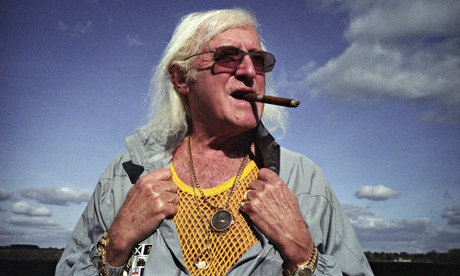Why the Impunity of Male Power Is the Big Theme of the Child Abuse Scandal
By Suzanne Moore
It's good, isn't it, that we are finally talking about paedophilia openly, and that something is apparently going to be done about it through all the various inquires? It's good, too, that we have seen successful prosecutions for "historical abuse". It's good that survivors and victims are speaking out even if, like Vanessa Feltz, they are then subject to vile online insults. No wonder, as the Liberal Democrat MP Tessa Munt explained, it had taken her until she was expecting her first child in her 30s to talk about her own experience of sexual abuse: "When I was a child, I didn't feel I was going to be believed". It's good, also, that after years of rumours about paedophile rings at the heart of the establishment, this will be investigated. Hopefully then it can all be tucked away nicely into the past and everything can get back to normal; all decent people are appalled – and so why is there still such a silence? This unsaid thing is ringing in my ears as I listen to the competitive outrage about it; it is part of the refusal to confront the gender dynamic, the sexual politics. Put simply: who is alleged to have done the abusing? Who has gone to prison for abuse? Men in positions of power. I am not saying women never abuse children – they do – but the large scale cover-ups that are now to be finally investigated are about men; the light entertainers now dead or in prison are male. Their victims are both girls and boys, those deemed to be at the very bottom of society who seemed disposable. Already there is a backlash to what is being called a moral panic. Have we not become hysterical seeing nice ordinary men as possible abusers when they are not? No, of course not. Are we overreacting? Let's be clear, in these inquires we are looking to see if institutions enabled and covered up the rape and sexual assault of children in their care. If this is the case then that culture of culpability needs to be busted open. We know better now. In some ways. Anyone who works with kids has to understand safeguarding, but we swing between excessive surveillance (a few years ago I had to have a CRB check to go on a school trip with my daughter) to outright denial that charming men are capable of doing anything so awful. Something strange is happening here, a collective refusal to contemplate how patriarchy works. And I shouldn't need to say this but it's obligatory: just because some men abuse children does not mean all men do. Men like Keir Starmer have worked tirelessly for victims to be heard. But an analysis of how male power operates would be useful, and there are experts in this. We are called feminists. Child abuse isn't a new story for us. Nor is a the sense of entitlement produced by the interaction of class and gender. To see Tim Fortescue, a Tory whip in the Heath government, talking openly in a 1995 documentary about smoothing over MPs' troubles such as "a scandal involving small boys" alerts us to who and what mattered then. Young working-class bodies and minds could be broken into with impunity. Celebrity then conferred a similar privilege. Many would prefer to take refuge in the idea of the paedophile as pathological and aberrant. Those who work with victims of abuse will tell you that as with rape, most abusers are known to the victim. Home is where the hatred is and that is why abuse rips apart the boundaries between love and trust and intimacy in families and is so devastating. Damage in individuals may be repaired, but now we can see that this damage spreads out to political legitimacy, to issues of trust. As with Jimmy Savile, we turn away from the victims and watch an episode of BBC self-flagellation. Now with these latest allegations the crisis focuses on institutional failure from Westminster down. The alleged crimes carried out mostly against young boys in care homes were, like most crimes, opportunistic. The perpetrators thought they could get away with it. They were not daft to think that. Men often have. A moral panic, in Stanley Cohen's words, happens when "a person or group of persons emerge to become defined as a threat to societal values and interests". This threat cannot be named as "creatures of the establishment" so it is "paedos". But we should not panic. There is no need to pathologise most child-adult relationships. Children should indeed learn to cope with strangers and understand what consent is. But it is absolutely negligent to talk about power and abuse without any context, in some gender-free vacuum. If we cannot talk about historical abuse and how male privilege operated to make it so risk-free, then it won't go away. Abuse is always an expression of power. Not acknowledging that power is another way of silencing its victims.
|
.
Any original material on these pages is copyright © BishopAccountability.org 2004. Reproduce freely with attribution.
